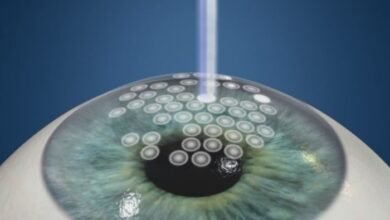How Diabetes Can Fail Kidneys: A Silent Connection

Diabetes, a chronic condition affecting millions globally, is often associated with high blood sugar levels. But did you know it can also silently damage your kidneys? The kidneys play a crucial role in filtering waste from your blood, but diabetes can impair their functioning over time. In this article, we’ll dive into the intricate connection between diabetes and kidney failure, exploring causes, symptoms, prevention, and treatment, all while ensuring you stay informed and empowered.
The Link Between Diabetes and Kidney Failure
Kidneys are remarkable organs that act as natural filters for your blood, removing toxins and balancing fluids. In people with diabetes, persistently high blood sugar levels damage the tiny blood vessels (glomeruli) in the kidneys, leading to a condition known as diabetic nephropathy. This damage compromises the kidneys’ ability to function properly and, if left untreated, can lead to kidney failure.
What is Diabetic Nephropathy?
Diabetic nephropathy is a progressive kidney disease caused by long-term diabetes. It typically develops over years and is one of the leading causes of kidney failure worldwide. Around 1 in 3 adults with diabetes is at risk of developing this complication.
The condition progresses through five stages:
- Early Stage: Increased kidney size and higher filtration rates, but no symptoms.
- Microalbuminuria: Leakage of small amounts of protein (albumin) into the urine.
- Macroalbuminuria: More significant protein loss in urine, accompanied by high blood pressure.
- Chronic Kidney Disease (CKD): Significant reduction in kidney function.
- Kidney Failure: Complete loss of kidney function, requiring dialysis or transplantation.
How Diabetes Affects Kidneys
The impact of diabetes on kidneys stems from three primary mechanisms:
- High Blood Sugar Levels:
Excess glucose in the blood damages the delicate filtering units of the kidneys, leading to scarring and reduced efficiency. - High Blood Pressure:
Diabetes often causes hypertension, which puts extra strain on the blood vessels in the kidneys, exacerbating damage. - Oxidative Stress and Inflammation:
Persistent high sugar levels trigger inflammation and oxidative stress, further damaging kidney tissues.
Symptoms of Kidney Damage Due to Diabetes
Kidney damage often starts silently, making it difficult to detect in its early stages. However, as the condition progresses, the following symptoms may appear:
- Swelling in the ankles, feet, or hands (edema).
- Increased need to urinate, especially at night.
- Fatigue and weakness.
- Nausea and vomiting.
- Persistent itching due to toxin buildup.
- Foamy or bubbly urine, a sign of protein leakage.
If you notice these symptoms, consult your doctor immediately. Early detection is key to managing diabetic kidney damage.
Diagnosing Diabetic Kidney Damage
Doctors use several tests to diagnose kidney damage in people with diabetes:
- Urine Tests:
Detect protein levels (albumin) in the urine, which indicate kidney damage. - Blood Tests:
Measure waste products like creatinine and urea to evaluate kidney function. - Glomerular Filtration Rate (GFR):
Assesses how well the kidneys are filtering blood. - Imaging Tests:
Ultrasounds or CT scans can identify structural abnormalities in the kidneys.
Prevention: How to Protect Your Kidneys from Diabetes
While diabetes increases the risk of kidney damage, you can take proactive steps to prevent or delay it:
- Maintain Blood Sugar Levels:
Regular monitoring and controlling blood sugar levels can significantly reduce the risk of kidney complications. - Manage Blood Pressure:
Aim for a blood pressure reading below 130/80 mmHg, as high blood pressure worsens kidney damage. - Adopt a Healthy Diet:
Focus on a diet rich in whole grains, vegetables, fruits, lean proteins, and low in salt and processed foods. - Stay Hydrated:
Drinking sufficient water helps flush out toxins and reduces the strain on your kidneys. - Avoid Smoking and Excessive Alcohol:
These habits increase oxidative stress and blood pressure, harming your kidneys. - Regular Check-ups:
Annual screenings for kidney function are essential if you have diabetes.
Treatment Options for Diabetic Kidney Damage
If diagnosed early, diabetic nephropathy can be managed to slow its progression. Common treatment options include:
- Medications:
- ACE Inhibitors or ARBs: Help control blood pressure and protect kidney function.
- Diuretics: Reduce fluid buildup in the body.
- SGLT2 Inhibitors: Lower blood sugar levels and have kidney-protective effects.
- Dialysis:
In advanced stages, dialysis is required to filter waste from the blood. - Kidney Transplant:
For end-stage kidney failure, a transplant is the best long-term solution. - Lifestyle Modifications:
Continued emphasis on diet, exercise, and stress management is crucial for improving outcomes.
A Personal Note on Diabetes and Kidneys
When my friend was diagnosed with diabetes, kidney health wasn’t something she worried about initially. But during a routine check-up, her doctor found early signs of kidney damage. Thankfully, with timely intervention, lifestyle changes, and medications, she managed to prevent further progression. Her story is a powerful reminder that vigilance and proactive care can make all the difference.
FAQs on How Diabetes Can Fail Kidneys
1. How does diabetes lead to kidney failure?
Diabetes damages the small blood vessels in the kidneys, reducing their ability to filter waste and leading to conditions like diabetic nephropathy.
2. What are the early signs of kidney damage in diabetics?
Early signs include swelling in the feet or ankles, foamy urine, increased nighttime urination, and unexplained fatigue.
3. Can diabetic kidney damage be reversed?
While kidney damage can’t be reversed, early intervention and proper management can slow its progression and improve quality of life.
4. How can I protect my kidneys if I have diabetes?
Control blood sugar and blood pressure, maintain a healthy diet, exercise regularly, stay hydrated, and avoid smoking or excessive alcohol consumption.
5. Are there specific diets for diabetics with kidney issues?
Yes, a kidney-friendly diet focuses on low sodium, moderate protein, and reduced potassium and phosphorus intake. A dietitian can help create a tailored plan.
6. Is dialysis the only option for diabetic kidney failure?
Dialysis is one option for end-stage kidney failure, but a kidney transplant is another effective long-term treatment.
Final Thoughts
Diabetes doesn’t have to be a life sentence for your kidneys. By understanding the risks, recognizing early symptoms, and committing to a proactive lifestyle, you can safeguard your kidney health. Remember, your kidneys work silently to keep you healthy—return the favor by taking care of them. After all, a healthy life starts with informed choices!



